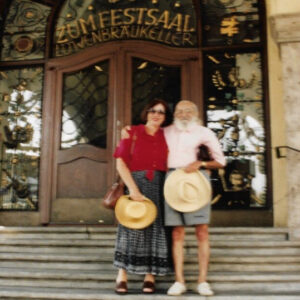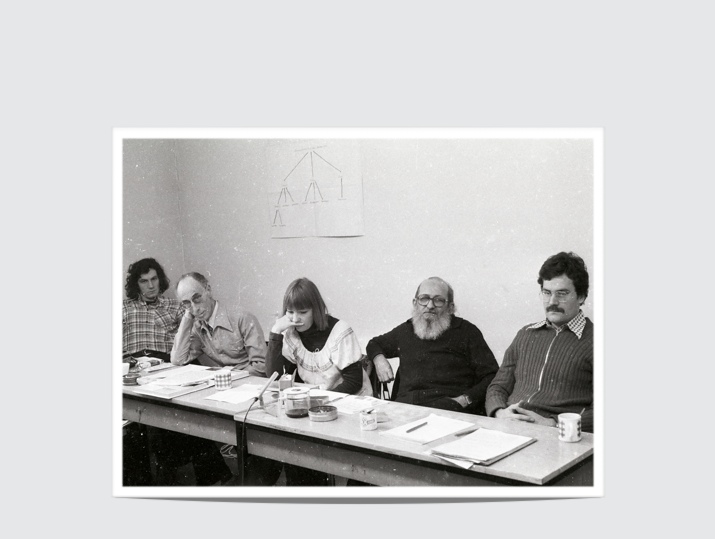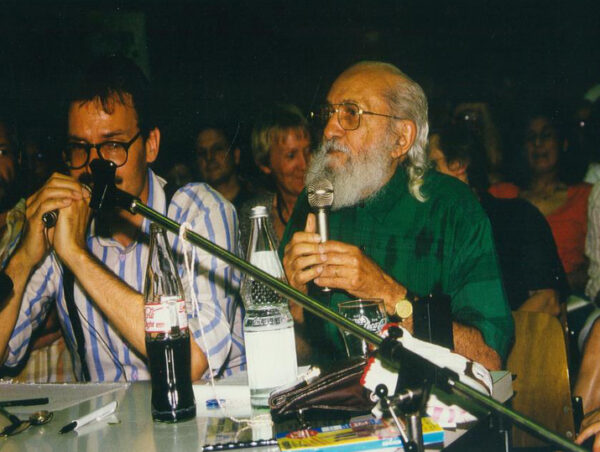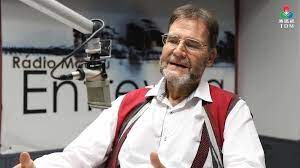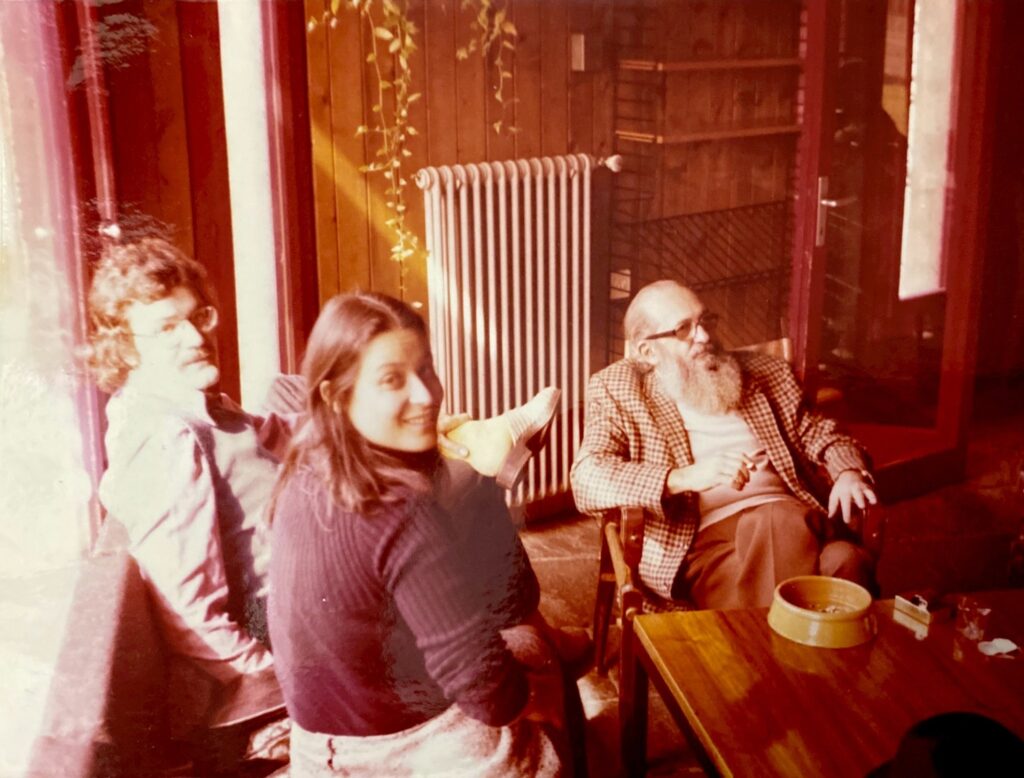|
Paulo Freire Von Paulo Freires Leben und Ziel der Die Weiterbildung Sie erhalten im Rahmen der
Aufbau und Alle Module bestehen |
|
Abschluss Zertifikat über die wissenschaftliche bescheinigung für einzelne Module. |
Konkrete Inhalte der Weiterbildung
Modul 1 – Freires THEORIE und PRAXIS – Von den ersten
Alphabetisierungskursen in Brasilien
zum „Weltpädagogen“ – Grundkonzepte seiner Pädagogik und weltweite Anwendungen
(Dr. Heinz Peter
Gerhardt, Hartwig Zillmer, (angefragt)
• Modul 2 – Dialogische Bildung in der Schule (Dr.
Joachim Dabisch, Dr. Jutta Lütjen, Hartwig Zillmer)
• Modul 3 – Grundlagen, Theorie und Praxis der
theaterpädagogischen Arbeit im Anschluss an das Theater der
Unterdrückten von Augusto Boal (Prof. Dr.
Michael Wrenchur und Dr. Birgit Fritz)
• Modul 4 – Alphabetisierung nach Freire als Weg
zur Mündigkeit (Dr. Heiner Zillmer, Prof. Dr.
Peter Rödler)
• Modul 5 – Dialogisches Handeln in Sozialer Arbeit (N.N.)
• Modul 6 – Der Dialog in frühpädagogischen Kontexten und
Konzepten (Prof. Dr. Angela Haubner)
• Modul 7 – Anwendungen in der Praxis –
Übungsräume (N.N.)
Reihenfolge der Module kann sich ändern.
Nutzen Sie die Chance, die Ansätze von Paulo Freire intensiv und in all
ihren Facetten kennenzulernen, weiterzudenken und in eigener Praxis
zu verwirklichen. Mit Abschluss des Zertifikats sind Sie in der Lage,
Erziehungs- und Bildungsprozesse auf Grundlager theoretischer Reflexionen und
weiterführender praktischer Erkenntnisse dialogisch zu gestalten.
Wir freuen uns auf Dein/Ihr Interesse.
Modul 2 –
Dialogische Bildung
in der Schule 20./21. March 2026 mit Dr.
Joachim Dabisch (http://www.dabisch.de/), Dr. Jutta Lütjen (https://dr-luetjen.de/)
und Hartwig Zillmer
stattfinden. (cost and place will still be notified here)
International Conference Critical Adult Learning and Education, UNESCO Chair in Global Adult Education, Malta 6-7th November 2025
The UNESCO Chair in Global Adult Education is organising its secondinternational conference in Critical Adult Learning and Education after the one in May 2023 combined with the International Cinference on Critical Education.
This year it will focus only on Critical Adult Learning and Education; 6-7 November 2025, Valletta, Malta. Abstracts submission: by 30 March 2025, on conference abstract submission site For any queries, contact convenor Peter Mayo: peter.mayo@um.edu.mt See Conference Website for details: https://www.um.edu.mt/events/cale2025/
Paulo Freire’s Legacy and the Necessity of Critical Pedagogy in Dark Times
By: Henry Giroux
September 30, 2024
Paulo Freire, the radical Brazilian educator, would have turned 103 on September 19, 2024. Freire was not merely an academic; he was a revolutionary, a fierce champion of the oppressed whose lifelong fight for economic, educational, and social justice has left an indelible mark on generations of teachers, students, and cultural workers worldwide. His seminal work, Pedagogy of the Oppressed, was written under the brutal political repression of 1960s Brazil, yet its message reverberates even louder today in the face of rising authoritarianism and the war on critical thought. Freire knew that education is never neutral—it is always a political act. It either serves to liberate or to domesticate, to empower or to subjugate…..
Massaker im Süden Israels/ „Vernichtung der Hamas“ im Gazastreifen: Wiederholen sich Katastrophen? Ein befreiungspädagogischer Aufriss*?
In seinem epochemachenden Werk „Pädagogik der Unterdrückten“ schrieb Paulo Freire (1971: 37):
“Mit der Schaffung von Unterdrückungsverhältnissen hat die Gewalt bereits begonnen. Noch nie in der Geschichte wurde die Gewalt von den Unterdrückten initiiert. Wie könnten sie die Initiatoren sein, wenn sie selbst das Ergebnis von Gewalt sind? (….) Es gäbe keine Unterdrückten, wenn es nicht zuvor eine Situation der Gewalt gegeben hätte, um ihre Unterwerfung zu begründen. Die Gewalt wird von denen initiiert, die unterdrücken, die ausbeuten, die andere nicht als Personen anerkennen – nicht von denen, die unterdrückt, ausgebeutet und nicht anerkannt werden.” Freire präzisiert aber klar, „Soll dieser Kampf (um Befreiung, d. V.) einen Sinn haben, dann dürfen die Unterdrückten bei ihrem Versuch, ihre Menschlichkeit wiederzugewinnen (als Mittel, um sie zu schaffen), nicht ihrerseits Unterdrücker der Unterdrücker werden, sondern sie müssen vielmehr die Menschlichkeit beider wiederherstellen. Das also ist die große humanistische und geschichtliche Aufgabe der Unterdrückten: sich selbst ebenso wie ihre Unterdrücker zu befreien.“ (S. 22)….
THE “PAULO FREIRE SYSTEM” IN ACTION: THE LITERACY CAMPAIGN IN BRASÍLIA 1963-64
Heinz Peter Gerhardt
Abstract
The construction of a new capital of Brazil, named Brasília, has been discussed since the revolutionary movement struggled for full independence from Portuguese colonial power and creation of a Brazilian republic. The capital of Rio de Janeiro was a symbol of Portuguese rule and exploitation. The construction of this new metropolis attracted a tremendous workforce flow from all parts of the country, living in tent, board and clay barracks. The squalid living conditions and the unbri-dled exploitation of the construction workers in Brasília were covered up by inten-sive government propaganda that trumpeted nationalist ideas of development. It was there and at that time, that Paulo Freire and his collaborators first investigated their concept of the “vocabulary universe” (universo vocabular). The pilot campaign in Brasília was the only finished practical experience of the famed National Plan for Alphabetization having been put forward by the reformist government of João Goulart. Paulo Freire was personally involved in the management of the pilot where his system and methods were to be employed the first-time on a national scale. This ex-post analysis is able to highlight the political and pedagogical challenges and di- lemmas Freire, his then wife Elza, and his team from Recife, encountered in their innovative approach to overcome illiteracy.
Keywords: Paulo Freire, Literacy, Brasilia – Pilot Campain, Praxis, Critical The-ory, Liberatio
Abstract
The construction of a new capital of Brazil, named Brasília, has been discussed since the revolutionary movement struggled for full independence from Portuguese colonial power and creation of a Brazilian republic. The capital of Rio de Janeiro was a symbol of Portuguese rule and exploitation. The construction of this new metropolis attracted a tremendous workforce flow from all parts of the country, living in tent, board and clay barracks. The squalid living conditions and the unbri-dled exploitation of the construction workers in Brasília were covered up by inten-sive government propaganda that trumpeted nationalist ideas of development. It was there and at that time, that Paulo Freire and his collaborators first investigated their concept of the “vocabulary universe” (universo vocabular). The pilot campaign in Brasília was the only finished practical experience of the famed National Plan for Alphabetization having been put forward by the reformist government of João Goulart. Paulo Freire was personally involved in the management of the pilot where his system and methods were to be employed the first-time on a national scale. This ex-post analysis is able to highlight the political and pedagogical challenges and di- lemmas Freire, his then wife Elza, and his team from Recife, encountered in their innovative approach to overcome illiteracy.
Keywords: Paulo Freire, Literacy, Brasilia – Pilot Campain, Praxis, Critical The-ory, Liberatio
